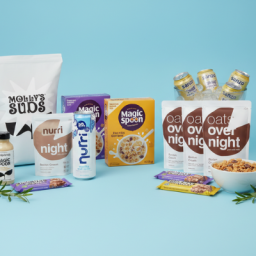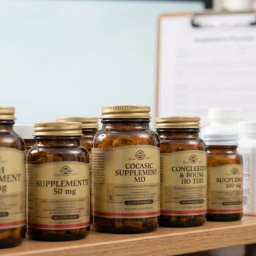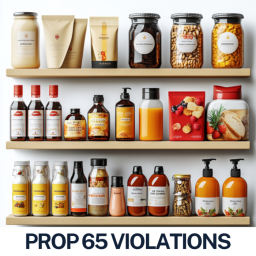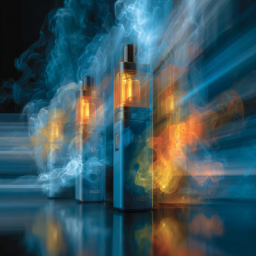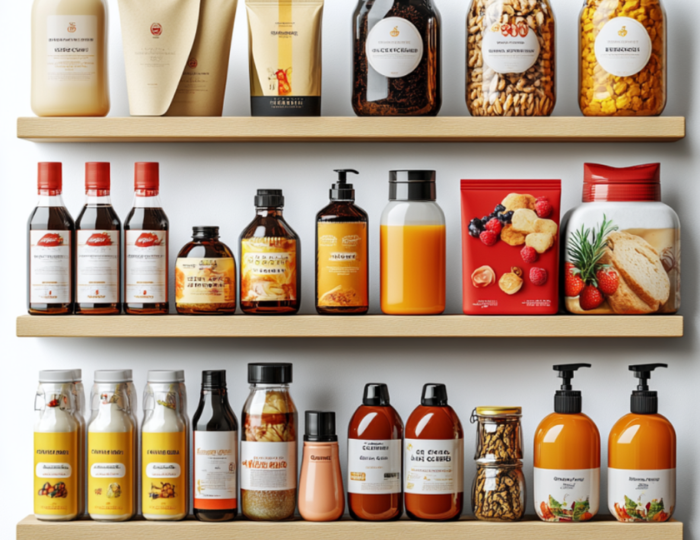
California Proposition 65 Enforcement: October 2025 Update
October 2025 saw 582 new Proposition 65 60-day notices, another heavy month driven by metals in foods and consumer goods, BPS in thermal papers/labels, and phthalates in vinyl accessories and packaging (derived from your October spreadsheet). The data show retailers and national chains continue to be named frequently alongside manufacturers and importers.
Tracking these monthly patterns helps manufacturers, importers, private-labelers, and retailers prioritize testing, labeling, and supplier controls before plaintiffs target a product line.
Monthly Violation Summary (October 1–31, 2025)
| Number of Violations | Listed Chemicals (grouped) | Types of Products Targeted |
|---|---|---|
| 453 | Heavy metals (Lead, Cadmium, Mercury, Nickel/Hex Chrome) | Seafood (bivalves/fish), ceramic mugs & décor, metal tools/utensils, artist pigments |
| 209 | BPS | Thermal receipt paper, shipping labels, stickers |
| 60 | Phthalates (DEHP, DINP, DBP) | Vinyl cosmetic/accessory bags, plasticized packaging, cords/grips |
| 17 | PFAS (PFOA/PFOS/PFNA) | Water-resistant packaging and containers; select wellness items |
| 4 | BPA | Canned/packaged foods & supplement packaging |
What is Proposition 65 and Why Does it Matter?
Proposition 65 (the Safe Drinking Water and Toxic Enforcement Act of 1986) requires warnings for significant exposures to ~900 listed chemicals that cause cancer or reproductive harm. Non-compliance can lead to civil penalties up to $2,500 per violation per day, mandatory reformulation/labeling, and public enforcement lawsuits with attorneys’ fees exposure—risks that routinely impact food, supplement, cosmetic, and household brands.
Notable Chemical Trends (October 2025)
Lead in Foods & Hardgoods
Lead remains the month’s most cited chemical, appearing across seafood products and ceramic/metal consumer goods. Expect continued focus on bivalves (mussels, clams, oysters) and decorated drinkware/hardgoods where glaze or metallic components leach.
BPS in Thermal Paper & Labels
BPS notices surged again, tied to retail receipts and thermal shipping labels—a consistent risk area for retailers, restaurants, and e-commerce operations. With no safe harbor level for BPS, defense often hinges on exposure assessment and warnings strategy.
Phthalates in Flexible Plastics
DEHP/DINP/DBP showed up in vinyl bags, pouches, plasticized wraps/cords and similar accessories—reiterating the need for supplier attestations and targeted phthalate testing for PVC components.
PFAS in Water-Resistant Materials
Notices citing PFOA/PFOS/PFNA continued in water-repellent packaging/containers and select wellness goods. PFAS chemicals often lack safe harbor levels, elevating litigation risk even at low exposures.
Mercury & Other Metals in Niche Goods
A smaller but notable cluster of mercury and nickel/hex-chrome notices appeared in specialty items and coatings—watch imported components and surface finishes.
Product Categories Most Frequently Targeted
Food & Beverage
- Bivalve seafood (mussels, clams, oysters), assorted fish products
- Canned/jarred items, sauces, spices/seasonings
- Dietary supplements and powdered products
Beauty & Wellness
- Lotions, creams, styling gels; bath/soak items
- Cosmetic/accessory bags with vinyl components
Household & Packaging
- Thermal receipts and shipping labels
- Ceramic mugs, decorated drinkware & home décor
- Vinyl/plastic packaging, cords/handles, tools/utensils
Art Supplies
- Artist paints, pigments, glazes and inks
Children’s, Apparel & Electronics (Smaller share)
- Select toys/plush with vinyl parts; belts/wallets; chargers and small accessories
Top Chemicals Cited – October 2025
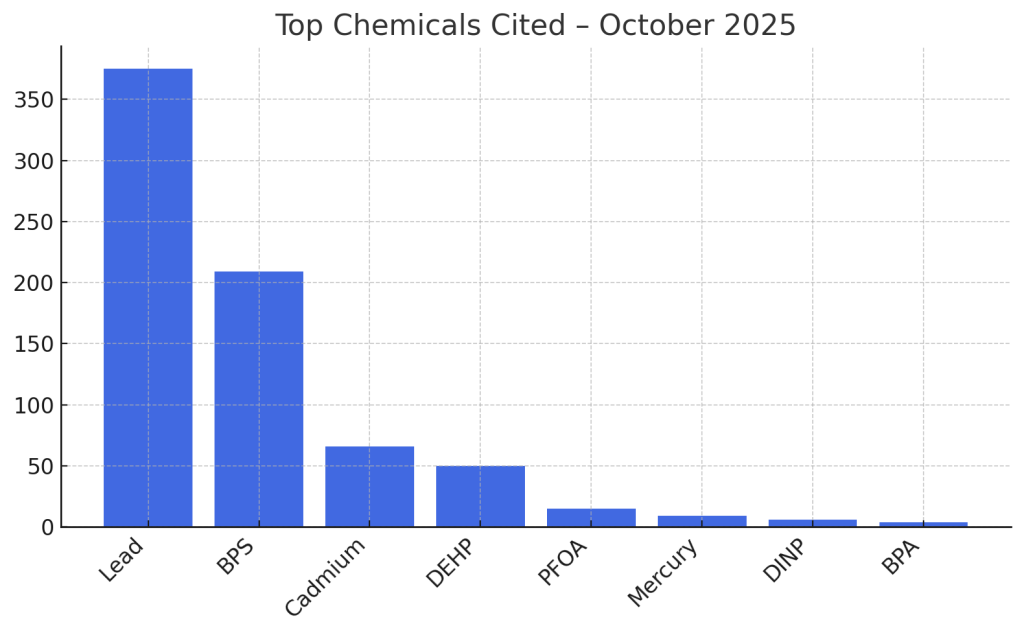
Top Noticing Parties – October 2025
Top 15 noticing parties
| Rank | Noticing Party | Notices Filed |
|---|---|---|
| 1 | Environmental Health Advocates, Inc. | 268 |
| 2 | CalSafe Research Center, Inc. | 66 |
| 3 | Clean Product Advocates, LLC | 37 |
| 4 | Gabriel Espinoza | 32 |
| 5 | Ecological Alliance, LLC | 28 |
| 6 | Calsafe Research Center, Inc. (duplicate entry under variant spelling) | 26 |
| 7 | Precila Balabbo | 19 |
| 8 | Keep America Safe and Beautiful | 19 |
| 9 | Ema Bell | 17 |
| 10 | Dennis Johnson | 13 |
| 11 | Environmental Research Center, Inc. | 10 |
| 12 | Consumer Advocacy Group, Inc. | 9 |
| 13 | Chemical Toxin Working Group Inc. dba Healthy Environment California | 6 |
| 14 | Sarah Hale | 5 |
| 15 | Berj Parseghian | 4 |
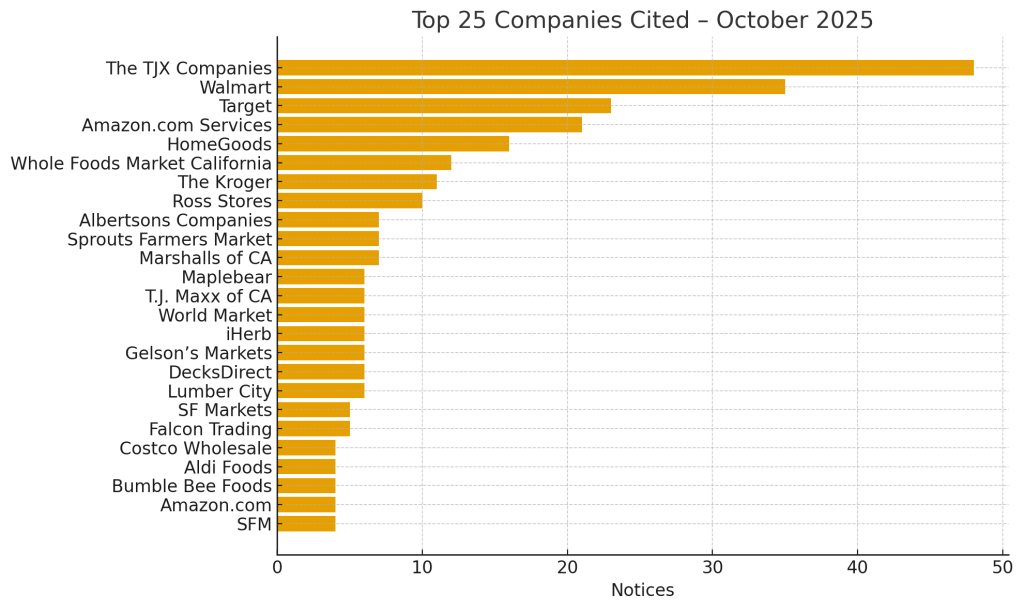
Top Companies Cited – October 2025
Top 25 Companies Cited
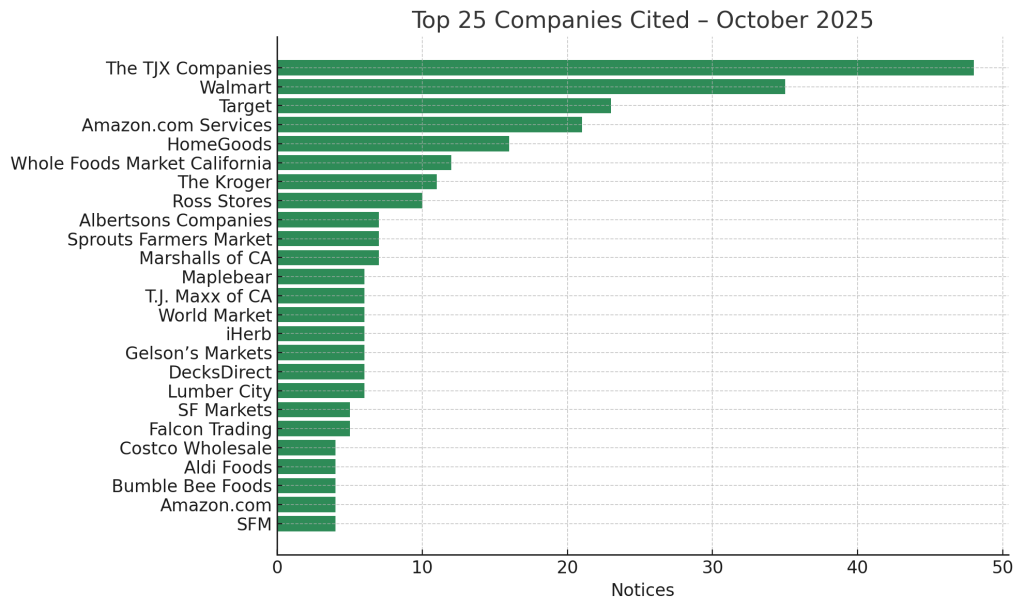
Legal Advisory
What Risks Do Licensors Face When Licensees Trigger Prop 65 Violations?
If your brand name appears on a product—even when a licensee oversees manufacturing or distribution—you can be named in a Prop 65 action. Common pitfalls include inadequate contractual controls, absent chemical testing, and insufficient online warning workflows.
Protective Measures
- Require Prop 65 compliance representations/covenants in all license and supply agreements.
- Mandate pre-shipment chemical testing (metals, BPA/BPS, phthalates, PFAS) with ongoing surveillance.
- Include indemnity, defense, and additional-insured obligations; verify limits and carriers.
- Audit and monitor e-commerce content to ensure warnings display pre-checkout for California sales.
How Can My Company Avoid a Prop 65 Lawsuit? (5-Step Checklist)
Test products & packaging
Use third-party labs to screen finished goods and critical raw materials for heavy metals, phthalates, BPA/BPS, PFAS. Re-test after supplier or formulation changes.
Evaluate/update warnings
Use safe harbor language; identify the specific chemical(s); ensure prominence in on-pack and online placements (pre-checkout).
Strengthen supplier agreements
Add chemical-content warranties, right-to-audit, and robust indemnities.
Monitor notices & peer categories
If competitors’ products are cited, assume similar components in your line may be at risk.
Engage experienced counsel early
We assess claims, coordinate testing, negotiate settlements, and defend enforcement actions efficiently.
About Juris Law Group
Juris Law Group is trusted Prop 65 counsel to national and global CPG brands. We design compliance programs and audits, craft warning-label strategies, conduct supply-chain reviews focused on indemnity protection, and provide rapid defense when 60-day notices arrive.
frequently asked questions (FAQ)
Do online-only sellers need Prop 65 warnings?
Yes. If a product enters California’s market, online listings must present compliant pre-checkout warnings for California customers.
Can trace amounts still trigger a notice?
Yes. Many notices involve trace levels of lead, cadmium, or phthalates if exposure exceeds thresholds—or where no safe harbor exists (e.g., BPS, certain PFAS).
Are imported or private-label items covered?
Yes. Importers, retailers, and private-labelers can be named if they introduce the product into California or their brand appears on the label.
Which plaintiff trends matter right now?
Heavy metals in foods, BPS in receipts/labels, phthalates in vinyl packaging/accessories, and PFAS in water-resistant materials continue to dominate.
Are cannabis/CBD items at risk?
Yes. Δ9-THC and marijuana smoke are listed; topicals, vapes, oils, and edibles can be cited—even for external use.
Want to Protect Your Brand from a Prop 65 Lawsuit?
Contact us at [email protected].
